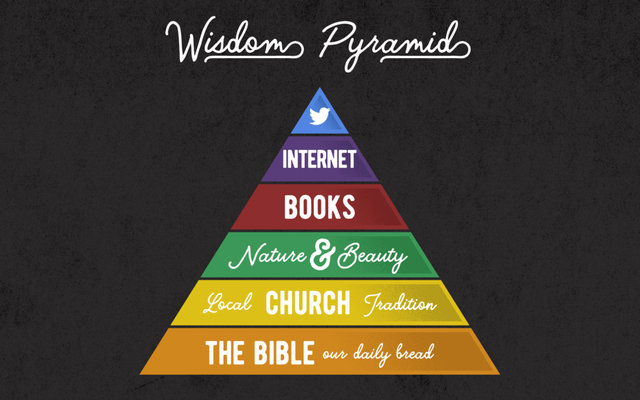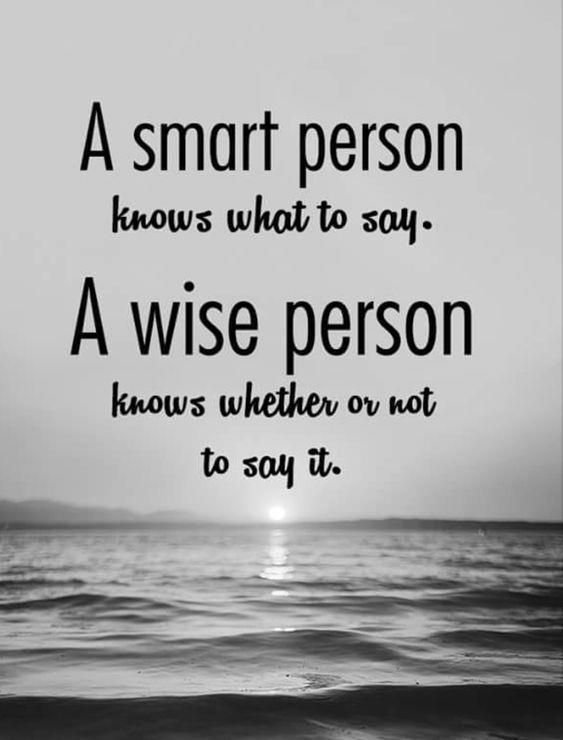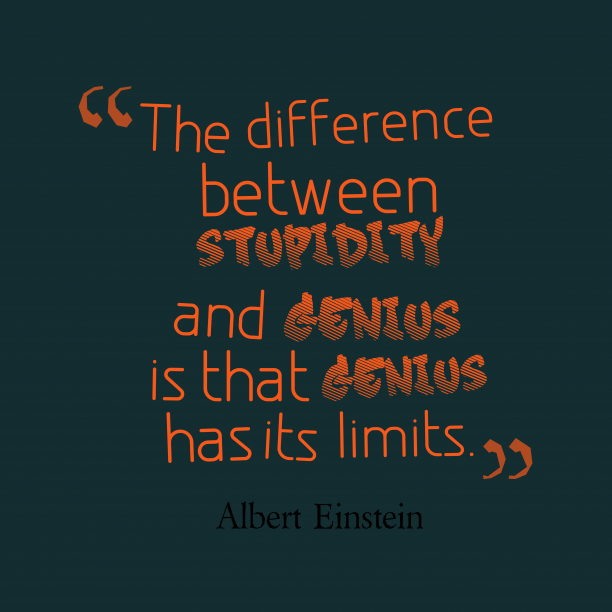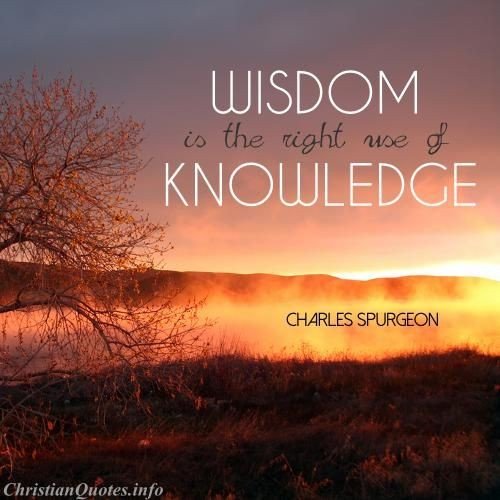Wanted to Become Wise or Intelligent? Understanding Intelligent and Wise People
Wanted to Become Wise or Intelligent? Understanding Intelligent and Wise People

It is easier to recognize a wise person than to describe wisdom itself. Many of us spontaneously think of those intelligent people in the world. But what is their wisdom? And what exactly does wisdom mean? Does it fall to a person like a gift, or is it based on skills that can even be learned under certain circumstances?
Traits of Wise People
Openness
Wisdom can only develop when people are ready to allow themselves to be changed. So if you do not meet new experiences with a preconceived perspective, which you want to keep if possible, but are willing to be surprised or impressed. To a certain extent, wise people have retained the childlike ability to marvel and perceive without immediate classification.
Openness to other people can be practiced at any time in everyday life. It is particularly exciting and instructive when you start with people who are actually rather distant from you. As a teacher you could choose a student who you find particularly difficult, as a nurse an exhausting patient, as an employee the inaccessible colleague or the distant boss. Make specific attempts to show interest in this person and ask them about their life and the reasons for their behavior. Perhaps this expression of interest alone creates a completely new type of contact. Or maybe you just understand better why this person behaves the way he does without particularly liking him. Maybe nothing happens or your impression is confirmed.
Controlling Feelings
Why don't we always succeed in acting as we would actually like to do? You know that it would be better, both for the situation and for your own well-being, not to get annoyed with the rude waitress or kindly tell the teen that the dirty dishes belong in the dishwasher.

The intensity of our feelings prevents us from thinking calmly and clearly, and above all from remaining aware of how unimportant a situation actually is. Wise people are better at this than many others. Wise people do not ignore or suppress their feelings. They perceive them, attach importance to them and therefore know how to deal with them as a situation requires.
Empathy
So we all naturally have a tendency to switch off our compassion when it comes to people whom we perceive as different and as belonging to a strange group. This almost instinctive behavior probably also has its roots in our evolutionary past. It may have ensured them a survival advantage when early humans preferred their own group and rejected and opposed others, especially when resources were scarce. Even today, the rejection of other groups is particularly visible when they could take something real or supposedly away from us.
So among the many illusions that wise people have overcome are stereotypes, the idea that other people have certain characteristics simply because they belong to a certain group. Those who know that people are different everywhere, who have made friends everywhere, will find it difficult to switch off their compassion towards others. Most of us who haven't been around that much can at least try to pay attention and watch ourselves particularly closely when we find that we have absolutely no empathy for someone.
Compassion is an important resource that can help us become wiser. That wise people help others by giving them good advice is one of the most common associations that children have with the term wisdom. Wise people are able to see what someone needs and convey it to them in a way that they can accept.

Reflection
Wise people think. They like to do this and more than other people, and most of all they often think a little further. Many people tend to believe simple explanations of complicated issues. When a politician promises to use common sense to solve a problem that has all failed so far, it attracts hopeful voters, whereas wise people tend to be skeptical. They know that the background to such a problem is complex, that there are many participants with different perspectives and needs, and that if the solution is too simple, some fall by the wayside. Wise people try to find solutions that balance different viewpoints and interests, so that overall the best possible compromise is found. The willingness to talk to everyone and to put oneself in their perspective can sometimes calm a conflict situation to such an extent that the joint search for a solution becomes possible.
Overcoming Illusions of Control
More than half of people believe they are intelligent above average, almost all of them think they are good people and are happy with their lives, and of course we generally believe that we are right with our beliefs. A particularly interesting area are the so-called control illusions. Many people overestimate the influence they themselves have on the events in their lives. We believe that nothing can happen to us while driving because we are experienced, prudent and careful. However, we ignore the fact that it can also happen that someone rushes towards us on the wrong side of the road while intoxicated or with suicide intentions, when we get behind the wheel. It wouldn't do us much good to think about such dangers all the time.
Wise people have no illusions of control, or at least less than most of us. They know from their own deepest experience how much can happen in life without you foreseeing it, and that you can only change other people in the rarest of cases. But this knowledge does not make them anxious, helpless or depressed, because their experiences have also taught them to have confidence, to accept what is happening and to work with it. They know they have the strength to face whatever happens.

Intelligence and Wisdom
Intelligence and wisdom are not the same thing, although many of us use the two terms interchangeably. We live in a society that values efficiency and results where it seems that only the most intelligent can succeed. But only wise people achieve real happiness. That's because they have strong values that guide them. Also because they are trying to do the right thing and are optimistic. Since we combine success and happiness, it only stands to reason that intelligence and wisdom also go hand in hand.
Doesn't intelligence give us the ability to act reasonably in daily life? Does n't a high IQ guarantee the ability to make good decisions ?
A brilliant person's success can be influenced by their personality and maturity, as well as their own ability to take care of their wellbeing and that of others.
Intelligence and wisdom need to be broken down and analyzed for a clearer and more useful understanding. We have to realize what is really important. In addition to a high IQ, it is essential to develop clear values that go beyond cognitive or emotional thinking, and thus to gain wisdom.

Experiences does not give wisdom
Many people think that experience gives wisdom. However, there is no direct relationship between the length of a person's life and their wisdom. This quality may come with age, but not always by itself.
In addition, researchers in the fields of psychology and sociology seek to understand the social, emotional, and cognitive processes that turn experience into wisdom. There are many other mediating variables between the two, such as the ability to reflect on one's own actions.
Smart employees are efficient and have high standards. You work more goal-oriented and strive for concrete results. They can get frustrated when something does not meet their expectations.
This tendency may make them anxious because people with high IQs often have insufficient tolerance for insecurity. This is exactly what distinguishes them from wise people. Wise people are better able to accept the unexpected and the unplanned. They know how to step back and take a patient, relaxed, and insightful look at reality.
Good Decision Makers
There are great individual differences between people with high IQs. While some make sensible, responsible decisions, others may get carried away by goals and statistics without considering other factors.

The clear difference between people of high intelligence and deep wisdom is that the second group tends to be more open. Because wisdom is more than just factual knowledge. Wise people are experienced, able to think clearly, and accept the ups and downs of life. Wise people are also mostly aware of how situations develop over time, which helps them stay balanced.
High intelligence can be used for noble purposes or, on the contrary, to manipulate, disguise, betray or create ambitious plans for lower motives. We humans use our intelligence for both selfless and selfish purposes.
Wisdom, on the other hand, is associated with an authentic sense of kindness. The word itself has connotations of kindness, humanity, and spirituality that inspire others to do good too.
Wisdom comes with positive mind
Wisdom almost always gives us a more positive view of life, our situation and other people. This hopeful but determined demeanor is related to the above factors and friendliness. Viewing a situation with wisdom can give us the energy and motivation to move forward.
We may wonder what is better to be very intelligent or very wise. But neither of the two qualities is better than the other. There are many wise, successful people who may not be very intelligent. Yet they are happy in their daily life. And vice versa, the same applies.
Let us therefore strive to develop both traits. Let's train our cognitive skills, improve emotional intelligence, and integrate each experience to take a more sensible, relaxed, and optimistic perspective. Because wisdom is the art of knowing what really matters and making good decisions to improve our own well-being and, above all, that of others.
